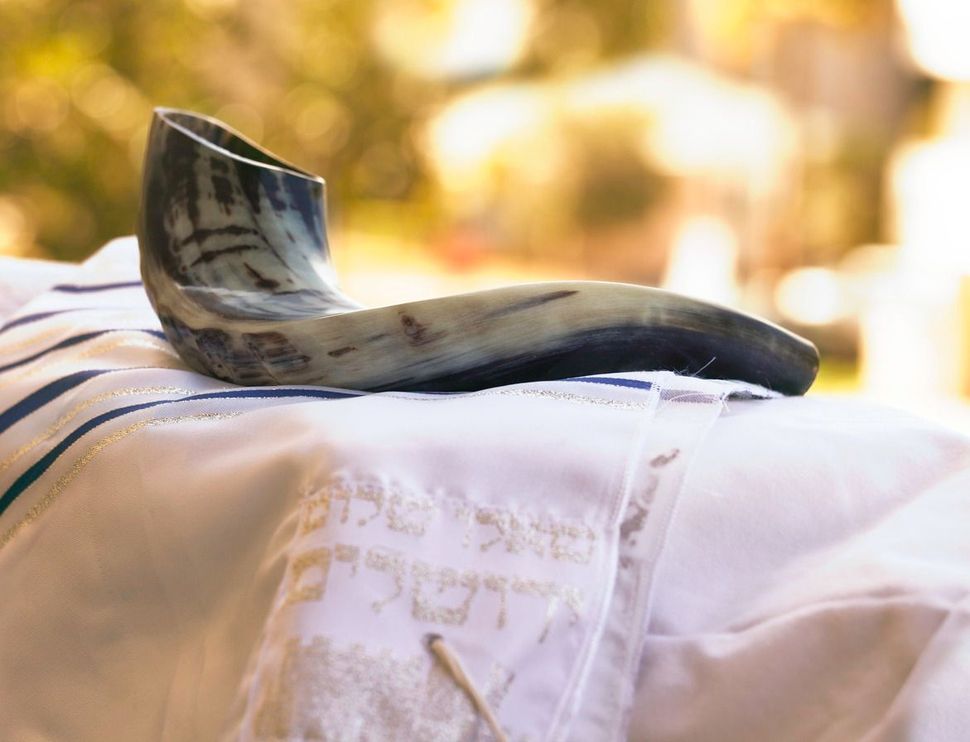Synagogues are bringing shofar to the Jews who can’t attend services

Image by iStock
With the High Holidays fast approaching, Jewish congregations and communities are rethinking how to fulfill the commandment of hearing the shofar blown at a time when the COVID-19 crisis has scattered so many worshippers.
The loud blare of the shofar is meant to inspire awareness, inciting greater self-reflection and attention to God during the High Holiday season. Hearing the cry of the shofar is so closely tied to the fundamental purpose of Rosh Hashanah that the holiday is referred to as the day of shouting — “Yom Teruah” — in the Torah.
“In the pre-COVID world, we had a full complement of services and we would blow the shofar during the service,” said Rabbi Yosie Levine from The Jewish Center in Manhattan. “This year, obviously, the situation is drastically different.”
Singing and blowing the shofar release large quantities of aerosols, small droplets that linger in the air and are associated with spreading COVID-19.
“If the aerosols induced by these activities can be infectious, then services might be a problem,” said ear, nose, and throat specialist Dr. Adam Schwalje, who wrote a scientific article about the dangers of playing wind instruments during the pandemic.
Mitigating the risk of infection is contingent on maintaining distance between people, wearing masks, reducing the duration of exposure, and establishing adequate ventilation, he said. Mitigation, however, does not guarantee total safety.
“We don’t know what the risk is, we can’t quantify it, and we don’t even know how many particles it takes to get the disease,” said Schwalje. “People have different levels of actual threat from the disease, so everyone needs to understand the level of uncertainty.”
Some Orthodox congregations, who reject the use of technology on the Sabbath and holidays, will meet in-person on Rosh Hashanah and are making adjustments so as to blow the shofar in accordance with public health restrictions. Still, many congregations must make other arrangements to accommodate worshippers.
“It’s our expectation that a lot of people won’t be in shul on Rosh Hashanah and won’t feel comfortable coming,” said Levine, “so we’re thinking of ways to help people experience Rosh Hashanah as fully as possible.”
Not only is The Jewish Center coordinating outdoor shofar blowings with other local synagogues, but the synagogue is planning to make home calls to those who are unable to attend services.
“If someone lives on the second floor and can open their window, then someone can be on the street and blow the shofar,” said Levine. “We’re planning to handle it on a case-by-case basis and are happy to cover anyone who wants to hear the shofar.”
Shofars have been taken to the streets at times of Jewish protest and outcry since the 1960s. This year, the sound of the “wake-up call” was noted at Black Lives Matter marches and protests for climate justice. Though the shofar is usually played publicly as a political statement, the pandemic has forced fulfillment of the mitzvah itself to move outside.
At Ahava, a community for Boston Jews unaffiliated with a brick-and-mortar-synagogue, High Holiday services are being conducted remotely over Zoom. Rather than bringing the shofar to worshippers at home, Cantor Jacqui Breines is offering drive-by shofar blowings so that people can attend at their own convenience and maintain a safe distance.
“It’s not going to be the same as a normal year, but this might be a really nice way to do something special,” said Breines. “I’m going to ask people to register, and if it ends up being a relatively small number, then I’ll just blow the shofar whenever it’s convenient for people to drive by.”
Jerusalem resident Yisroel Picker has sounded the shofar at his synagogue for the past 18 years and has made it a priority to help others hear the shofar despite the pandemic. Picker, who is a member of a Facebook group organizing volunteer shofar blowers to play around Jerusalem during Rosh Hashanah, will spend much of this year’s High Holiday outside of his apartment, blowing the traditional horn for any potential passerby.
“Whoever wants can come and listen if I’m blowing on my porch,” said Picker. “Whoever wants to hear it, let them.”
For those who do not want to attend a public blowing or lack access to an at-home visit, Picker has also been offering private shofar lessons remotely and in-person while remaining socially-distanced. Finding that many people already own a shofar but are unsure how to blow it, he has taken it upon himself to help others fulfill the mitzvah without leaving the house.
“I’m getting a lot of people who want to learn it so that they can play the shofar for their families,” said Picker. “This way, people who are being extremely careful about the virus can hear the shofar in their own homes.”





















